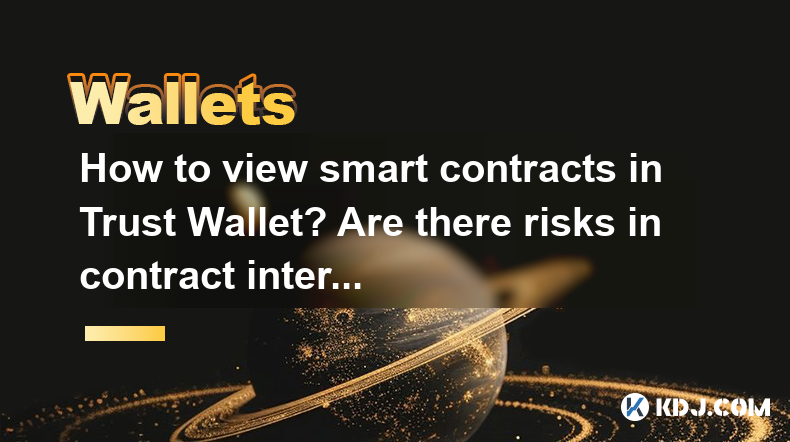-
 Bitcoin
Bitcoin $98,696.4813
1.97% -
 Ethereum
Ethereum $1,839.9405
0.62% -
 Tether USDt
Tether USDt $1.0003
0.04% -
 XRP
XRP $2.1641
0.81% -
 BNB
BNB $606.5038
0.64% -
 Solana
Solana $149.9212
1.57% -
 USDC
USDC $1.0001
0.02% -
 Dogecoin
Dogecoin $0.1766
2.91% -
 Cardano
Cardano $0.6910
1.50% -
 TRON
TRON $0.2491
1.92% -
 Sui
Sui $3.5376
4.40% -
 Chainlink
Chainlink $14.2514
2.21% -
 Avalanche
Avalanche $20.0095
0.58% -
 Stellar
Stellar $0.2649
1.32% -
 UNUS SED LEO
UNUS SED LEO $8.8204
1.04% -
 Bitcoin Cash
Bitcoin Cash $401.5836
6.88% -
 Shiba Inu
Shiba Inu $0.0...01303
1.94% -
 Hedera
Hedera $0.1790
1.59% -
 Toncoin
Toncoin $3.0336
0.86% -
 Hyperliquid
Hyperliquid $21.1292
1.42% -
 Litecoin
Litecoin $91.5628
-0.48% -
 Polkadot
Polkadot $4.0843
3.08% -
 Dai
Dai $1.0003
0.01% -
 Monero
Monero $284.0939
-0.18% -
 Bitget Token
Bitget Token $4.2822
-0.48% -
 Ethena USDe
Ethena USDe $1.0006
0.02% -
 Pi
Pi $0.6135
5.73% -
 Pepe
Pepe $0.0...08417
4.91% -
 Bittensor
Bittensor $382.8826
0.81% -
 Uniswap
Uniswap $4.9987
0.68%
How to view smart contracts in Trust Wallet? Are there risks in contract interaction?
To view smart contracts in Trust Wallet, use the DApps browser to connect to a DApp, then find and verify the contract address on a blockchain explorer like Etherscan.
May 06, 2025 at 11:00 pm

How to View Smart Contracts in Trust Wallet? Are There Risks in Contract Interaction?
Trust Wallet is a popular mobile cryptocurrency wallet that supports a wide range of cryptocurrencies and tokens, including those based on smart contracts. Smart contracts are self-executing contracts with the terms of the agreement directly written into code. They run on blockchain platforms like Ethereum, and users often interact with them through decentralized applications (dApps). This article will guide you through the process of viewing smart contracts in Trust Wallet and discuss the potential risks associated with interacting with them.
Understanding Smart Contracts in Trust Wallet
Before diving into how to view smart contracts, it's essential to understand what they are and how they function within Trust Wallet. Smart contracts are programs stored on a blockchain that automatically execute when predetermined conditions are met. In Trust Wallet, you can interact with these contracts to perform various functions, such as token swaps, staking, and more.
Steps to View Smart Contracts in Trust Wallet
To view smart contracts in Trust Wallet, follow these detailed steps:
- Open Trust Wallet: Launch the Trust Wallet app on your mobile device.
- Navigate to the DApps Browser: Tap on the "DApps" icon at the bottom of the screen. This will open the DApps browser, where you can access various decentralized applications.
- Select a DApp: Choose a DApp that you want to interact with. For example, if you want to view a token's smart contract, you might select a DApp like Uniswap or PancakeSwap.
- Connect Your Wallet: Once you've selected a DApp, you'll need to connect your Trust Wallet to it. Tap on the "Connect" button and follow the prompts to authorize the connection.
- Access the Smart Contract: After connecting, navigate through the DApp to find the section where you can view the smart contract details. This might be under a "Contract" or "Token Info" section.
- View Contract Address: The smart contract address is usually a long string of characters. You can copy this address to view more details on a blockchain explorer like Etherscan or BscScan.
Verifying Smart Contracts
Verifying the authenticity of a smart contract is crucial before interacting with it. Here's how you can do it:
- Copy the Contract Address: From the DApp, copy the smart contract address as mentioned in the previous section.
- Visit a Blockchain Explorer: Open a blockchain explorer like Etherscan (for Ethereum) or BscScan (for Binance Smart Chain) in your web browser.
- Paste the Contract Address: Enter the copied contract address into the search bar of the blockchain explorer and hit enter.
- Check Contract Details: On the explorer, you'll see detailed information about the smart contract, including its source code, transaction history, and more. Look for a "Verified" status, which indicates that the contract's source code has been verified and is publicly available.
Risks Associated with Smart Contract Interaction
Interacting with smart contracts can be risky, and it's important to be aware of these risks:
- Code Vulnerabilities: Smart contracts are written in code, and like any software, they can have bugs or vulnerabilities. If a smart contract is exploited, it could lead to loss of funds.
- Phishing Scams: Malicious actors may create fake DApps or smart contracts to trick users into connecting their wallets and approving transactions that drain their funds.
- Rug Pulls: In some cases, developers may create a smart contract, attract users to invest, and then suddenly withdraw all the funds, leaving investors with worthless tokens.
- Unverified Contracts: Interacting with unverified smart contracts can be particularly risky, as you have no way to verify the code's integrity.
Best Practices for Safe Smart Contract Interaction
To minimize the risks associated with smart contract interaction, follow these best practices:
- Verify the Contract: Always verify the smart contract on a blockchain explorer before interacting with it. Look for a "Verified" status and review the source code if possible.
- Use Trusted DApps: Stick to well-known and reputable DApps. Research the DApp and its developers before connecting your wallet.
- Start Small: When interacting with a new smart contract, start with small amounts to test its functionality and reliability.
- Keep Software Updated: Ensure that your Trust Wallet app and any DApps you use are up to date to protect against known vulnerabilities.
- Be Wary of Approvals: Be cautious when approving transactions, especially those that request unlimited allowances. Always review the transaction details carefully.
Frequently Asked Questions
Q: Can I view smart contracts directly within the Trust Wallet app without using a DApp?
A: No, Trust Wallet does not currently offer a feature to view smart contracts directly within the app. You need to use the DApps browser to connect to a DApp and then view the smart contract details.
Q: Is it safe to interact with smart contracts on the Binance Smart Chain?
A: Interacting with smart contracts on any blockchain, including the Binance Smart Chain, carries risks. However, by following best practices such as verifying contracts and using trusted DApps, you can minimize these risks.
Q: What should I do if I suspect a smart contract I've interacted with is malicious?
A: If you suspect a smart contract is malicious, immediately disconnect your wallet from the DApp, and do not approve any further transactions. Report the issue to the DApp's developers and consider seeking help from a blockchain security expert.
Q: Can I revoke permissions granted to a smart contract in Trust Wallet?
A: Yes, you can revoke permissions granted to a smart contract using tools like Revoke.cash. You'll need to connect your wallet to the Revoke.cash website and follow the instructions to revoke any unwanted allowances.
Disclaimer:info@kdj.com
The information provided is not trading advice. kdj.com does not assume any responsibility for any investments made based on the information provided in this article. Cryptocurrencies are highly volatile and it is highly recommended that you invest with caution after thorough research!
If you believe that the content used on this website infringes your copyright, please contact us immediately (info@kdj.com) and we will delete it promptly.
- Bitcoin mining company Core Scientific's net income surged 173% to $580.7 million in Q1 2025
- 2025-05-08 10:05:24
- Emilie Choi, President and Chief Operating Officer, and Alesia Haas, Chief Financial Officer, Will Participate in a Fireside Chat at the J.P. Morgan Global Technology
- 2025-05-08 10:05:24
- SOL Price Eyes a Breakout as Stablecoin Supply and DeFi Activity Hit Record Highs on the Solana Blockchain.
- 2025-05-08 10:01:51
- As it tests its distribution system, World Liberty Financial (WLFI), the cryptocurrency platform supported by the Trump family, has suggested rewarding early WLFI token holders with an airdrop of its USD1 stablecoin.
- 2025-05-08 10:01:51
- Whale investors in Ripple (XRP) and Ethereum (ETH) are flocking to Mutuum Finance (MUTM), a decentralized token
- 2025-05-08 09:55:13
- LINE NEXT and Kaia have teamed up with Tether to bring USDT to Kaia's blockchain
- 2025-05-08 09:55:13
Related knowledge

How to store Bitcoin safely? How to keep private keys and mnemonics?
May 08,2025 at 02:00am
Storing Bitcoin safely is a critical concern for any cryptocurrency holder. To ensure the security of your digital assets, it's essential to understand the various methods of storage and the importance of safeguarding your private keys and mnemonics. This article will guide you through the best practices for storing Bitcoin safely and managing your priv...

How to choose a MOVE wallet? What should I pay attention to for safe storage?
May 08,2025 at 01:14am
Choosing the right MOVE wallet and ensuring safe storage of your cryptocurrencies is crucial for any investor or user in the crypto space. MOVE, a cryptocurrency designed for fast and secure transactions, requires a wallet that can handle its specific features. In this article, we will explore the various types of MOVE wallets, the factors to consider w...

How to choose a STRK wallet? Which is safer, a cold wallet or a hot wallet?
May 07,2025 at 07:29pm
Choosing the right STRK wallet is crucial for securely managing your STRK tokens. STRK, being a cryptocurrency, requires a wallet that supports its specific blockchain and offers robust security features. When selecting a wallet, consider factors such as security, ease of use, and compatibility with your devices. In this article, we will explore the dif...

How to choose a JTO wallet? Which is better, cold storage or hot wallet?
May 08,2025 at 07:14am
Choosing the right JTO wallet is crucial for anyone looking to safely store their JTO tokens. The primary decision you'll need to make is between a cold storage wallet and a hot wallet. Each type has its own set of advantages and disadvantages, which we'll explore in detail to help you make an informed choice. Understanding JTO WalletsJTO wallets are di...

How to store KAIA tokens safely? Which is more recommended, cold wallet or hot wallet?
May 07,2025 at 03:15pm
Storing KAIA tokens safely is crucial for protecting your digital assets. KAIA, the native token of the Kardiachain ecosystem, can be stored in various types of wallets, each with its own set of security features and conveniences. The primary decision you need to make is whether to use a cold wallet or a hot wallet. In this article, we will explore both...

How to choose THETA wallet? Which is safer, cold storage or hot wallet?
May 07,2025 at 02:01pm
Choosing the right THETA wallet is crucial for the security and management of your THETA tokens. With numerous options available, it's important to consider various factors such as security, ease of use, and compatibility with your devices. In this article, we'll explore how to choose a THETA wallet and compare the safety of cold storage versus hot wall...

How to store Bitcoin safely? How to keep private keys and mnemonics?
May 08,2025 at 02:00am
Storing Bitcoin safely is a critical concern for any cryptocurrency holder. To ensure the security of your digital assets, it's essential to understand the various methods of storage and the importance of safeguarding your private keys and mnemonics. This article will guide you through the best practices for storing Bitcoin safely and managing your priv...

How to choose a MOVE wallet? What should I pay attention to for safe storage?
May 08,2025 at 01:14am
Choosing the right MOVE wallet and ensuring safe storage of your cryptocurrencies is crucial for any investor or user in the crypto space. MOVE, a cryptocurrency designed for fast and secure transactions, requires a wallet that can handle its specific features. In this article, we will explore the various types of MOVE wallets, the factors to consider w...

How to choose a STRK wallet? Which is safer, a cold wallet or a hot wallet?
May 07,2025 at 07:29pm
Choosing the right STRK wallet is crucial for securely managing your STRK tokens. STRK, being a cryptocurrency, requires a wallet that supports its specific blockchain and offers robust security features. When selecting a wallet, consider factors such as security, ease of use, and compatibility with your devices. In this article, we will explore the dif...

How to choose a JTO wallet? Which is better, cold storage or hot wallet?
May 08,2025 at 07:14am
Choosing the right JTO wallet is crucial for anyone looking to safely store their JTO tokens. The primary decision you'll need to make is between a cold storage wallet and a hot wallet. Each type has its own set of advantages and disadvantages, which we'll explore in detail to help you make an informed choice. Understanding JTO WalletsJTO wallets are di...

How to store KAIA tokens safely? Which is more recommended, cold wallet or hot wallet?
May 07,2025 at 03:15pm
Storing KAIA tokens safely is crucial for protecting your digital assets. KAIA, the native token of the Kardiachain ecosystem, can be stored in various types of wallets, each with its own set of security features and conveniences. The primary decision you need to make is whether to use a cold wallet or a hot wallet. In this article, we will explore both...

How to choose THETA wallet? Which is safer, cold storage or hot wallet?
May 07,2025 at 02:01pm
Choosing the right THETA wallet is crucial for the security and management of your THETA tokens. With numerous options available, it's important to consider various factors such as security, ease of use, and compatibility with your devices. In this article, we'll explore how to choose a THETA wallet and compare the safety of cold storage versus hot wall...
See all articles





















































































